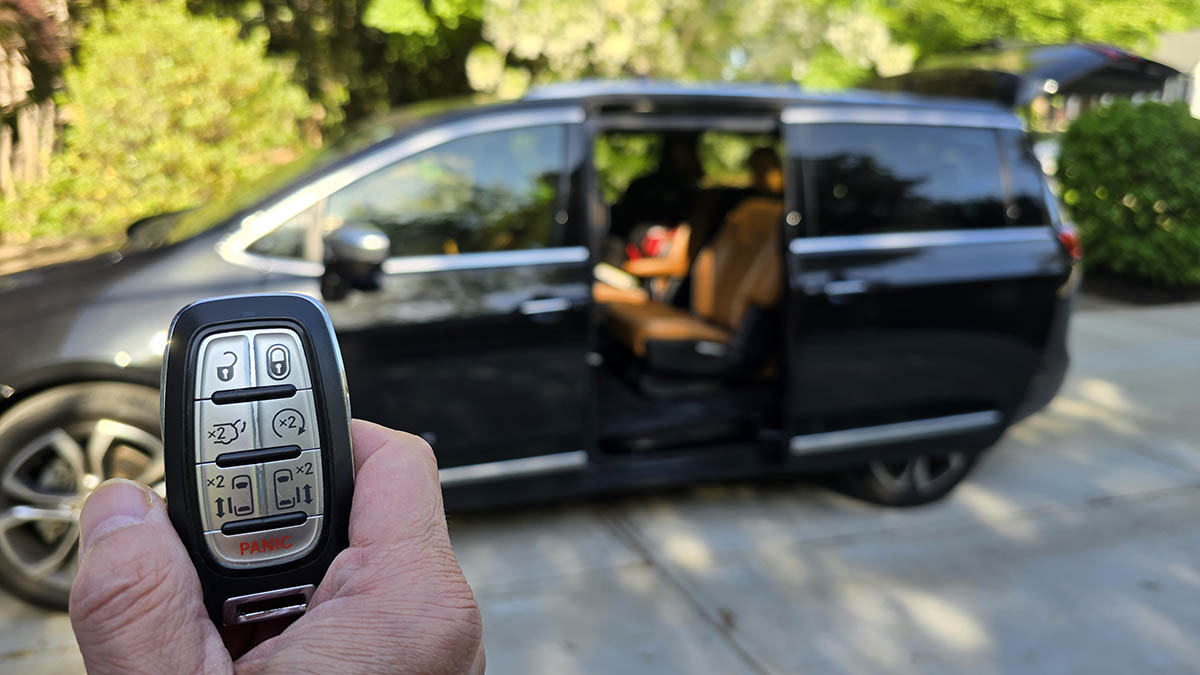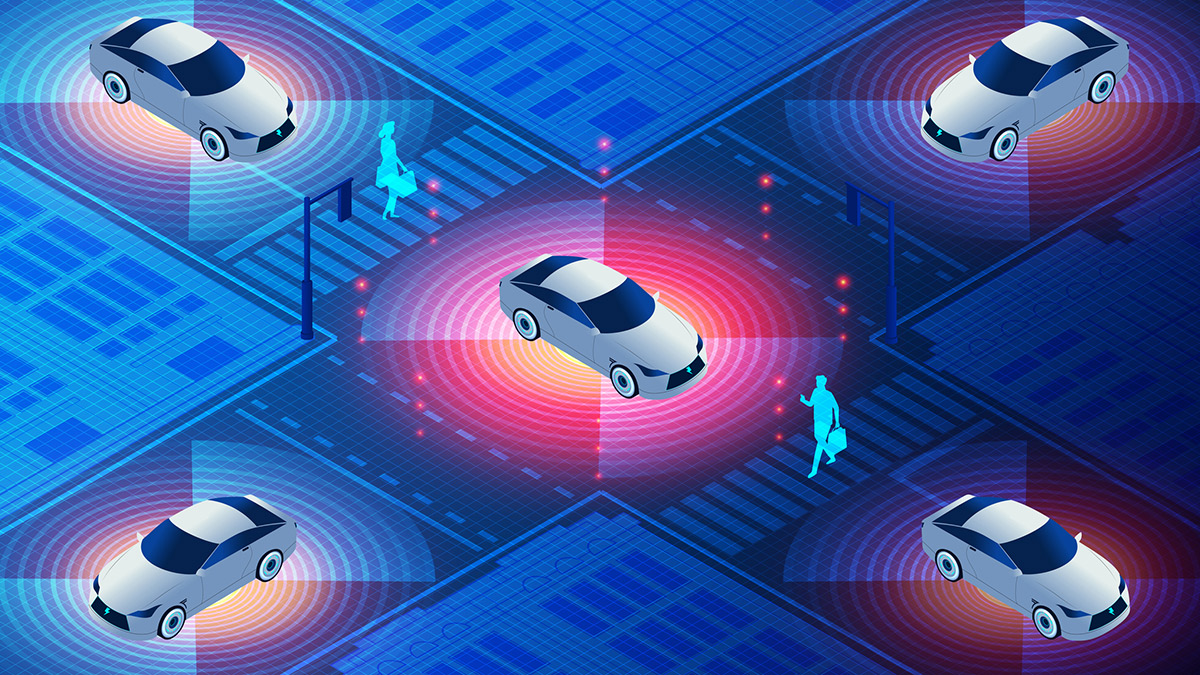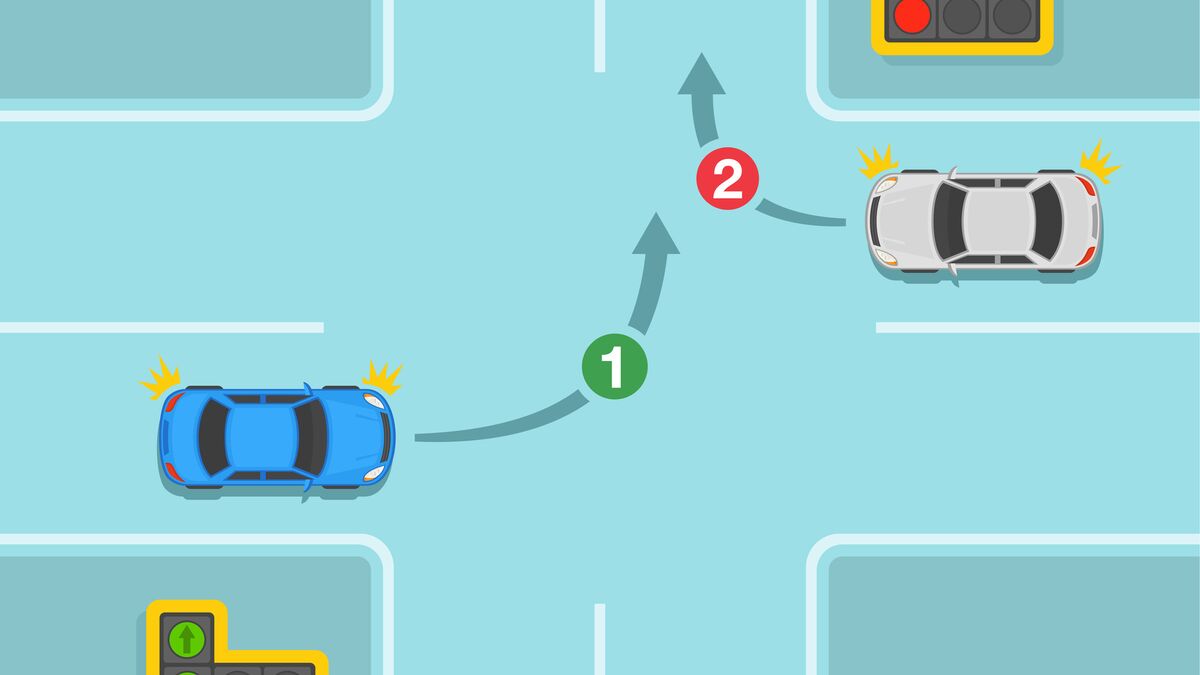A proximity key (also called a “smart key” or “intelligent key”) is an electronic fob used for keyless entry and ignition systems in vehicles. Proximity keys pair with push-button starters, enabling drivers to unlock, enter, and start their cars without removing the fob from their pockets or purses.
The “key” transmits low-frequency (LF) radio waves to communicate with a vehicle to lock and unlock doors and start the engine when within a short range. Antennae within the vehicle identify the rolling code radio pulse generator inside the fob.
Vehicles with a smart key system also have a mechanical key backup. A spare physical key blade hides inside the fob, and a cover plate conceals the door’s keyhole. The mechanical key may become necessary if the battery powering the fob dies or something interferes with the radio signal. Proximity keys are expensive to replace when lost or damaged.
Drivers can use the physical key to start the car by popping open the cover on the starter button inside the vehicle. Aside from convenience, they can improve the security of your car. Manufacturers can program the system with several security measures to make it more difficult to steal the car. Insurance companies sometimes discount premiums for vehicles with smart or proximity keys.
See also: What Is Self-Driving? What Is Cruise Control?








